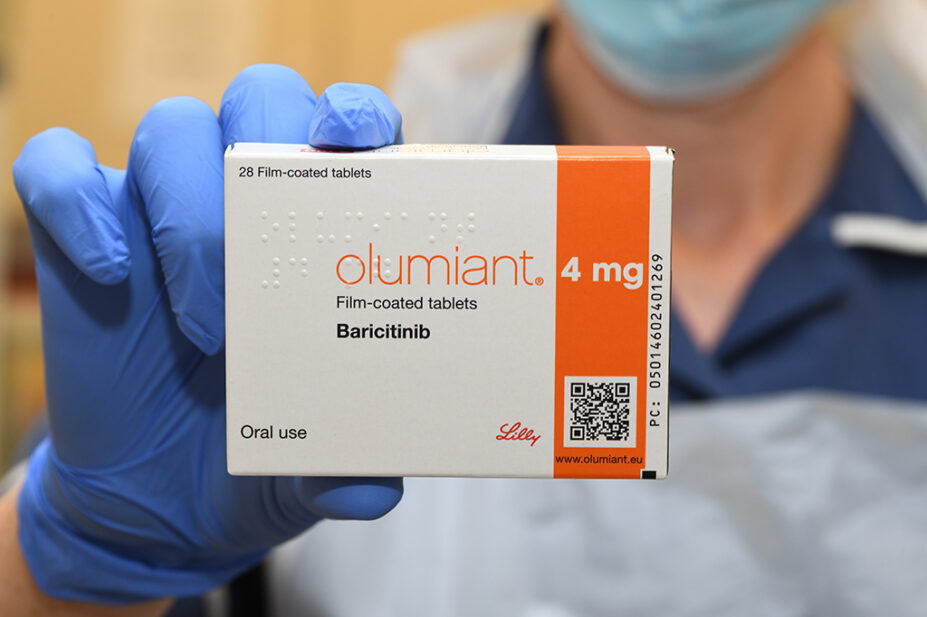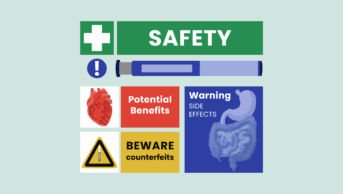
DR P. MARAZZI/SCIENCE PHOTO LIBRARY
Clinicians should avoid prescribing janus kinase (JAK) inhibitors for inflammatory conditions in patients aged 65 years or over, long-term smokers or those with risk factors for cardiovascular disease or malignancy, the medicines regulator has advised.
In “risk minimisation measures”, issued by the Medicines and Healthcare products Regulatory Agency (MHRA) on 26 April 2023, the regulator also advised caution if prescribing the drugs to patients with risk factors for venous thromboembolism (VTE), such as previous VTE or use of combined hormonal contraceptives or hormone replacement therapy.
The measures come after the MHRA reviewed recommendations issued by the European Medicines Agency (EMA) in October 2022, alongside advice from the Commission on Human Medicines’ Pharmacovigilance Expert Advisory Group.
JAK inhibitors, such as baricitinib (Olumiant; Lilly), upadacitinib (Rinvoq; AbbVie), and tofacitinib (Xeljanz; Pfizer), are used to treat chronic inflammatory disorders, such as severe arthritis, psoriatic arthritis, inflammatory bowel diseases and atopic dermatitis.
The MHRA previously published similar measures in 2020 and 2021, after finding that patients taking tofacitinib have increased risk of major cardiovascular problems, cancer, VTE, serious infections and death, when compared with those taking tumour necrosis factor-alpha (TNF-a) inhibitors.
However, in October 2022, the EMA reported that a broader review had confirmed that the findings applied to all approved JAK inhibitors used to treat chronic inflammatory disorders.
“The MHRA reviewed the recommendations together with information relevant to the use of these medicines in the UK and sought independent advice from the Pharmacovigilance Expert Advisory Group of the UK’s Commission on Human Medicines,” the regulator said.
“Following this review, changes are being made to the product information for all JAK inhibitor medicines authorised for inflammatory diseases to note the updated risk characterisation and expanded risk minimisation measures.”
The risks are greater in patients with risk factors, such as being age 65 years or older, having an already increased risk of major cardiovascular problems or cancer, or in those who smoke or have smoked in the past for a long time.
“Where applicable, use lower doses in patients with risk factors,” the MHRA advice added.
Andrew Pothecary, lead pharmacist in rheumatology and biologics at Royal Cornwall Hospitals NHS Trust, said the advice established a patient group that should ideally not be treated with any JAK inhibitor, but that the “blanket guidance” did not recognise some of the nuances.
“For example, there is likely to be a difference in cardiovascular risk between the different diseases treated with JAK inhibitors; for example, the QRISK3 algorithm only includes rheumatoid arthritis as a risk factor for heart attack or stroke, not any of the other indications,” he said.
“Additionally, smoking is recognised as a risk factor for the development of rheumatoid arthritis so this may be a potential confounding factor. It’s also not clear by what mechanism the risk is increased, and if this depends on the specificity/selectivity of the JAK inhibitor for different members of the JAK family.”
Pothecary added that there are “likely to be some patients already on JAKs who should potentially avoid them based on this new advice, and this could lead to some difficult conversations, particularly if patients are doing well on treatment”.
The MHRA’s advice is not relevant for the use of JAK inhibitors to treat myeloproliferative disorders or for the use of baricitinib, off-licence, for the treatment of COVID-19.


